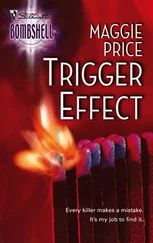“So why do you think the double Hero of the Month experience nightmares and personality issues over an action the rest of the world views as praiseworthy?”
I thought for a moment.
“Stage fright,” I said.
“Stage fright?”
“Stage fright,” I said again. “Tomorrow night, I’m going to be talking about this with somebody else. On the radio.”
Ages before the shooting, I learned that I suffered from Toothpaste Syndrome. I discovered this over the summer between sixth and seventh grades, when Bobby and I enrolled in an aikido class through the parks and recreation department in Catawba County. The teacher, a short, powerfully-built retired Marine named Henry Burton—we called him “Sensei”—taught me about it my first day in the class.
“Toothpaste Syndrome occurs when the shit hits the fan and you forget everything you’ve been taught,” Sensei said. “The squeeze comes on and all your knowledge, all your training, squirts right out the top of your head. Like a tube of toothpaste.”
I remember standing there in slack jawed shock. Not just because an authority figure had said a word like “shit,” but because while Toothpaste Syndrome had afflicted me my entire life, only then did I learn that there existed a name for it. And what a perfect name! What a clever, humorous yet stunningly accurate way to describe what had happened in every crisis situation I had ever experienced! Or at least what I thought of then as a crisis situation. Throughout my life I had suffered from a noticeable inability to rise to the occasion. Fights and snarky remarks from fellow students, white trash or black trash bumping into me at the mall and glaring at me with disrespect instead of apologizing—my brain always responded to an adrenaline dump by shutting down. I could pull my hand off a hot stove but I couldn’t launch a smart comeback, lacking as I did the quick wit that came so easily to everyone else. My zingers typically arrived hours later, on the bus or in bed or in the shower, when the instant danger had subsided and I’d had time to think. I always knew what to do, what to say, hours later. When the heat came on, though, I forgot my lines.
And now Sensei gave me a name for it: Toothpaste Syndrome . I suffered from a syndrome , not a personality defect. Not a character defect. A syndrome. Which, according to Sensei, I could control with ki breathing. This consisted of deep, controlled breaths where you filled your lungs to capacity and released the air in a slow exhalation that left your body relaxed and energized. Concentrate on the air, he said. Focus on air, focus on breath, and as the body relaxes so does the mind. The toothpaste remains in the tube.
Sitting before the microphone on a soundstage twenty-two years later, I tried to engage in ki breathing. As soon as I stepped into the room and saw the lights and microphones and headphones and the coffee cups and the computers, I suddenly understood that in a matter of minutes a powerful transmitter would broadcast my every stutter, stumble and mistake to thousands of listeners. Not just in Alamance County, but as far as the AM waves would reach.
“Ever been on the air before?”
Billy Horton, the host of AM 1110’s Alamance Talks, sat in one of the chairs before a single desktop computer. He looked exactly as Tom Spicer had described him; fat and old. He had a head of messy gray hair shot through with white. His body overflowed the edges of the chair, drooping towards the ground like the wax of a melting candle in the same way as the lower half of his face hung below his chin. Some of his hair had migrated from his head to other places, and remnants of it grew in his ears and his nose. He’s fat and old, Tom had said. And he’s a son of a bitch. If you want to punch him in the face at some point during the program, do it. I’ll post your bail .
During Tom’s unsuccessful run as the Democratic candidate for the state Senate in 2010, Billy had run a segment every weekday evening called Stupid Things Tom Spicer Says, culled from Tom’s statements to the press and the myriad closing arguments he’d made in Superior Court over the years. During the run, Billy came to be known in our office as The Fat Satan. Consequently, when I entered the studio, I walked in expecting horns and a tail, or at least a forked tongue. I found none of that.
“No,” I said. This came out unsteadily, which alarmed me. The program hadn’t even started yet, and I had already mangled the simplest word in the English language. What would happen when I had to say my name?
“It ain’t no big thing,” Billy said with a chuckle. “Most of the time, hardly anybody’s out there. My wife don’t even listen no more.”
Not true in my case. I could count on Allie tuning in, and Abby, too. Abby’s friends and their parents. Everybody at the firm. Every lawyer who knew me. All of my clients, past and present. Every man and woman in broadcast range who had ever worried about a home invasion but read in the newspaper that Kevin Swanson had foiled one. Six months later, the community still basked in the warmth of one of those rare occasions when the good guys had won. And they would all listen tonight.
“We’re on in thirty seconds,” said the engineer, a young intern from one of the Greensboro colleges. Unlike his boss, he was rail-thin and boasted a head of shaggy, Beatle-esque brown hair. Billy had introduced him as Dylan, or maybe William. I hadn’t really been paying attention, so his name had sailed in and out through the same ears as his college.
“Remember what I told you,” said Craig Montero from a seat in the corner. He had insisted on coming to supervise me, he said. To make sure I behaved myself. “Try to imagine what a well-adjusted family man in his mid-thirties would say and channel him. You say anything crazy, I’m cutting you off.”
“Just be yourself and don’t say any cuss words,” Billy added. “You’ll do fine.”
“Back on in ten,” said Dylan or William.
Everyone fell silent. Billy cleared his throat.
“Five… four… three… two… one.”
And I went live.
“Welcome back, ladies and gentlemen, you’re listening to Alamance Talks, the voice of conservatism in Alamance County. I am, of course and as always, Billy Horton. I’m in here tonight with a very special person, a man who needs no introduction because every one of us knows him, likes him and wants to be him—a man whose index finger did more for society in five seconds than most men do with both hands their entire lives—Kevin Swanson. Good evening, Kevin.”
I opened my mouth. A tumbleweed fell out, but recognizable English words followed it. “Good evening, Billy.”
“Now, just in case there’s somebody out there who spent the last six months in a coma, Kevin here is a lawyer from Burlington, but in February of this year, Kevin used a privately-owned firearm—an AK-47, am I correct?”
I nodded. Then, remembering nobody could see this on the radio, I said, “Yes.”
I looked to Craig for approval. His features unreadable, he nodded once.
“Kevin used an AK-47, people—a weapon your liberal opposition thinks common folk shouldn’t have—to defend his home against two criminal punks who came over from Durham to make trouble here in Alamance County. Bad move, guys, bad, bad move. Kevin, if you could… tell us what happened.”
I swallowed. Billy looked at me expectantly. Craig looked at me warily. On the wall, the ON AIR sign glowed bright orange as the dead air crackled before my lips.
Ki breath, I remembered.
“Well,” I began in a voice a good register or two higher than normal. “It started in my basement. I fell asleep on the couch watching a Carolina basketball game.”
Читать дальше












